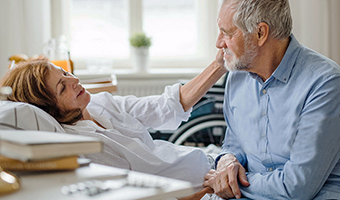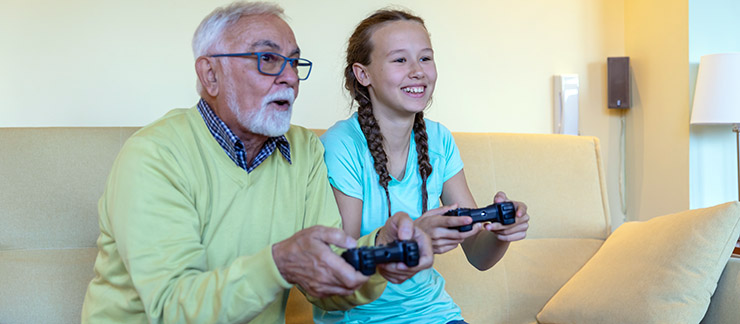More Millennials Taking on the Role of Family Caregiver
Millennial children and grandchildren have been thrust into the vital role of senior caregiver as the current baby boomer population ages. An estimated 10 million millennials (ages 25 to 40) are the primary supports for an aging loved one in the United States. This accounts for 1 in 4 family caregivers, according to a 2018 American Association of Retired Persons (AARP) report.
During the past year, the COVID-19 pandemic forced many millennials to realize how much personal attention their mothers, fathers, or grandparents need and, therefore, are assuming care responsibilities themselves.
Millennial Caregivers Face Challenges
Caring for an elderly loved one can be tough for anyone, but millennials are encountering some of the following common issues when providing care for their elderly parents or grandparents:
- Stalled careers and delayed higher education
Millennials are significantly more likely to be caregivers while simultaneously working or pursuing higher education. They’re also likely to be less advanced in their careers than older caregivers. This can lead many young caregivers to feel uncertain about discussing their need for a flexible schedule with their employer or college. In fact, some may feel the need—or pressure—to delay their education or take on a job promotion with these challenging new responsibilities.
- Financial instability
Around 53 percent of millennial caregivers also work full-time, and a significant portion of their income–averaging at 27 percent–goes into caregiving expenses, far more than any previous generation of caregivers.
- Strained mental and emotional health
While caregiving can often be emotionally rewarding, it can also cause significant emotional strain. Burnout and stress are high among millennials. Up to 80 percent of millennial caregivers reported significant stress, and 82 percent said caring for an elderly loved one has compromised their personal lives.
Home Care Resources for Millennials Caregivers
More caregiver support networks are beginning to focus on millennials. Visiting Angels’ home care, for example, helps relieve some of the burden millennials may experience and enable them to focus more on their personal lives, education, and careers without feeling they’re neglecting their elderly loved ones.
In-home care offers the following support for millennial caregivers:
- Housekeeping
Part of an in-home caregiver’s job is taking care of light housekeeping, including cleaning and meal preparation. An in-home caregiver can help reduce the time you have to spend taking care of housekeeping chores and increase the amount of time you can spend with your parent.
- Transportation and scheduling assistance
An in-home caregiver can help your loved one keep vital doctor appointments and make arrangements for a ride to and from appointments. In-home caregivers can also help your loved one on public transportation, and accompany them on leisure activities, such as going to a park or a neighbor’s house.
- Monitoring for symptoms and side effects
For older adults with chronic conditions such as diabetes or arthritis, having someone around to make sure they aren’t experiencing serious symptoms or side effects is important. If your elderly loved one falls or has a medical emergency while you’re not available, an in-home caregiver can request additional medical help right away, alert you that something is wrong, and make sure your loved one gets the care they need.
- Medication reminders
In-home caregivers will remind your parents/grandparents to take their medications on time when you’re not around, giving you peace of mind knowing they are getting their proper medication.
- Emotional support and socialization
In-home care can help if you worry about your elderly loved one feeling isolated or lonely while you’re away. An in-home caregiver can regularly spend time with your loved one to reduce their feelings of loneliness and improve their mental and emotional health.
- Respite care
Even if you don’t hire an in-home caregiver full time, respite care is still useful. Taking a break from being a caregiver, while leaving your parents in good hands, can give you the time and energy to take care of your own needs, reduce the strain that caring puts on family relationships, and allow you to live your own life.
Contact your nearest Visiting Angels home care location for assistance. Our coordinators are available to discuss how our compassionate caregivers can make a difference during a free home care consultation.













